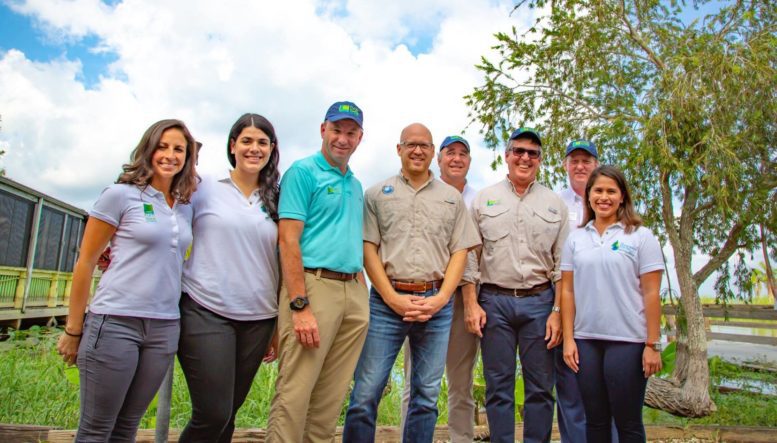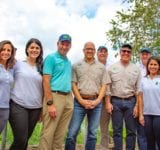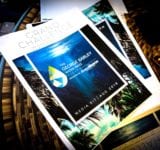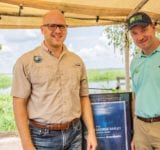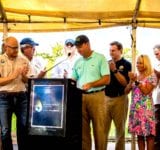Palmetto Bay-based Everglades Foundation recently applauded the announcement of a $1-million investment from the State of Florida to solve worldwide phosphorus pollution through competition and innovation.
As a part of the state’s partnership, the Florida Department of Environmental Protection (DEP) and the St. John’s River Water Management District will provide funding, the host site location, and technical expertise to support the George Barley Water Prize.
The partnership is for the final stage of the prize’s multi-year innovation competition, where the final four teams will travel to Lake Jesup from across the globe to see whose technologies can tackle phosphorus in the most cost-effective and scalable way.
With offices at 18001 Old Cutler Road in Palmetto Bay, The Everglades Foundation is a 501(c)(3) non-profit dedicated to protecting and restoring America’s Everglades through science, advocacy and education
“The Foundation is thrilled to have the State of Florida support the George Barley Water Prize to help solve global phosphorus pollution,” said Eric Eikenberg, CEO of The Everglades Foundation.
“We are excited that, with the support of Governor Scott, the Department of Environmental Protection, and the St. Johns River Water Management District, the solution will likely be discovered right here in Florida at Lake Jesup,” he added.
The George Barley Water Prize is the first water prize of its kind – a $10-million competition that has drawn innovators from all over the world to pursue their unique solutions to make the problems Florida is experiencing today in the Everglades and Lake Okeechobee a thing of the past.
“The George Barley Water Prize is our best hope for Lake Jesup, the Great Lakes, our coastal estuaries, the Everglades and waterways across the globe that are suffering from excess phosphorous,” said Eikenberg, “
The Everglades Foundation and its board of directors conceived the $10-million George Barley Water Prize seven years ago in order to incentivize the private sector to develop more cost-effective technologies to remove phosphorus pollution from waterbodies.
The board realized that the situation affecting the Everglades and Lake Okeechobee is something communities all over the globe were experiencing, and the best way to drive the cost down was to incentivize innovation. The Everglades Foundation just finished the pilot stage of testing in Ontario, Canada.
Earlier this morning, The Everglades Foundation was joined by DEP Secretary Noah Valenstein and SJRWMD Executive Director Dr. Ann Shortelle, as they stood on the banks of Lake Jesup and announced the key partnership in support of finding a solution to ending algae-causing phosphorus pollution.
Secretary Valenstein explained that the state continues to make historic investments in critical projects to improve water quality and store and move water south in the Everglades. “While we remain focused on these long-term restoration projects, we are also committed to collaborating with partners, like the Everglades Foundation, to incentivize innovation to assist in protecting waterways not only in Florida, but around the world.”
Dr. Shortelle said, “We are grateful for the opportunity to provide our expertise and land at Lake Jesup for these teams to test their innovative technologies that could change the way we treat water quality concerns across our state. It’s through these types of partnerships we are able to find creative solutions to restore our natural resources for residents, visitors and future generations.”
“The participation of the State of Florida in the Barley Prize reinforces the critical nature of this research and the true power of public-private partnerships,” said Jim King, president of The Scotts Miracle-Gro Foundation, which is the presenting sponsor of the George Barley Water Prize.
“We want to thank the state for its commitment to this effort and hope its participation encourages other state environmental agencies to follow suit,” he said
About The Everglades Foundation:
The Everglades Foundation is a 501(c)(3) non-profit dedicated to leading efforts to restore and protect the greater Everglades ecosystem. Since its founding in 1993 by a group of local outdoor enthusiasts, the Foundation has become a respected and important advocate for the sustainability of one of the world’s most unique ecosystems. For more information, please visit EvergladesFoundation.org.


